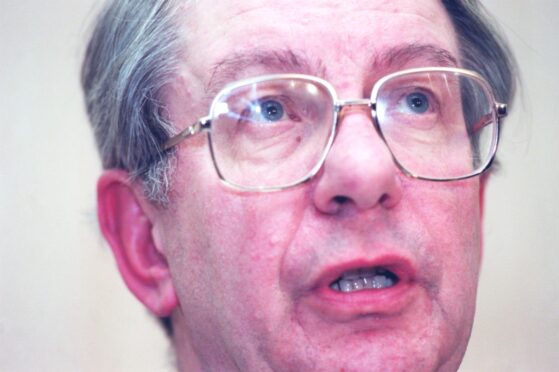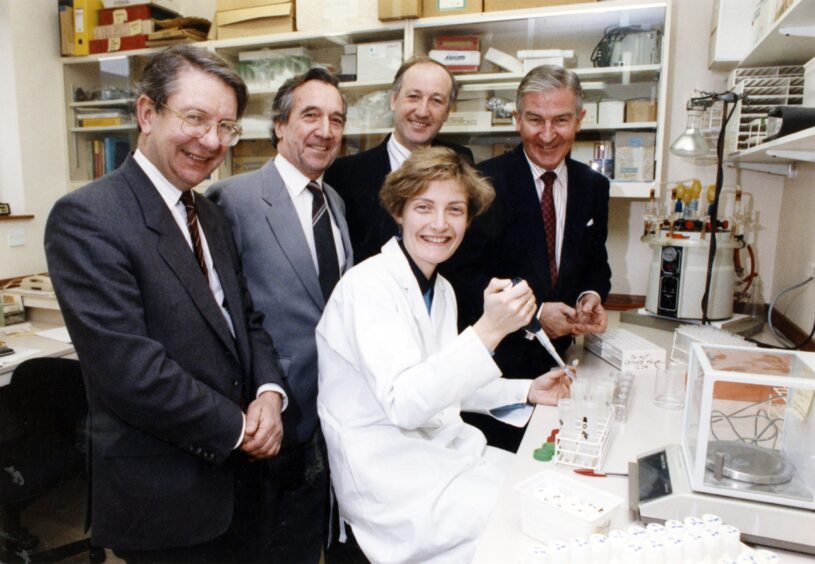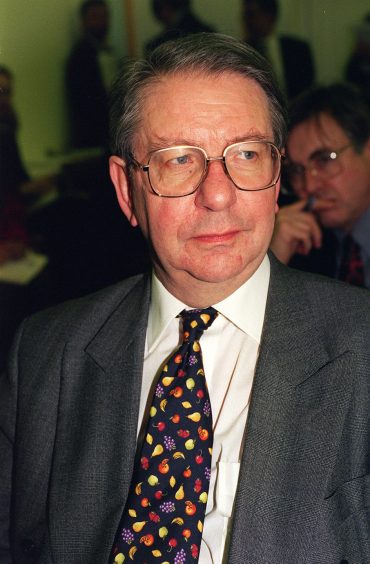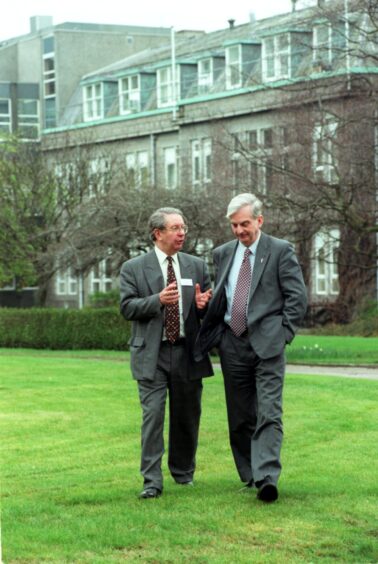An Aberdeen scientist credited with saving the lives of “millions of children globally” has died aged 85.
Professor Philip James was a world obesity expert who led Aberdeen’s Rowett Institute and helped establish the Food Standards Agency.
During his career he also brought the now-standard BMI to the fore, went head-to-head with the American soft drinks industry and led the humanitarian effort to get food to besieged families in Sarajevo.
Path to medicine
Born on June 27 1938 to a teacher and a headmaster, Philip and his three sisters grew up in Bala, rural North Wales.
Despite early heart and pulmonary problems Philip attended Ackworth – a Quaker boarding school in Yorkshire – before getting off to an almost disastrous start at University College Medical School in London.
He wrote: “On arrival I was told the exam had been the previous week. Then discovering their mistake I was taken to see three old men who asked me how I had got there.
“I explained I was on my way to Saltzburg with a school group in a rebuilt, old, burned-out Rolls-Royce which I had rewired. We chatted for perhaps half an hour and then they concluded with a cheery ‘See you next October!’”
In fact he had been in the presence of Julian Huxley, AV Hill and Bernard Katz all Nobel prize winners.
Life-saving work
After graduating, Philip worked in London hospitals. Interested in nutrition he was then approached by the Medical Research Council (MRC) in 1965 to study in Jamaica. Despite “knowing nothing about” malnutrition and stunting in children he developed treatments to aid severe malnutrition, cholera and diarrhoea.
In a tribute from Aberdeen University these advances are said to have “helped save the lives of millions of children globally”.
After Jamaica, James worked for Massachusetts General Hospital in Boston before returning to London. He worked first in the MRC Gastroenterology Unit then the London School of Hygiene and Tropical Medicine.
Elevating the ‘Body Mass Index’
Around 1971 he became interested in obesity. At that time there was yet to be an agreed scheme to classify obesity.
Philip wrote: “But in the archives of the school I stumbled upon a really old
copy of the Metropolitan Life Insurance publication about pre–Second World War life expectancy of US men and women.
“By using Quetelet’s original index of weight over height squared – with small adjustments for the weight of clothes and height of shoe heels, the optimum body mass index (BMI) proved to be the same at all except the most extreme heights. So BMIs became the routine measure for assessing body weights internationally.”
A move to Aberdeen
In the 1970s Philip narrated a BBC Horizon programme and worked on one of the first documentaries on healthier eating since the war.
But by 1982, funding cuts ushered in a move to Aberdeen as director of the Rowett Institute, now part of Aberdeen University.
Between 1983 and 1986 the Rowett became internationally recognised through its analysis for the World Health Organisation (WHO).
“The analysis provided recommended vegetable and fruit intakes, although the United States was unhappy with his recommended maximum sugar intake, which, he speculated, might have been due to pressure from the soft drinks industry,” said an Aberdeen University spokesperson.
Pressing to get obesity on to the political agenda, Philip also established an International Obesity Task Force.
‘Mad cow disease’
Under his leadership, the Rowett played a key role in the country’s response to the BSE crisis. Following this and an E.Coli outbreak, then Prime Minister Tony Blair asked him to develop the Food Standards Agency to protect the country’s food supply.
On April 30 1997 The James Report was published.
At the time Tony Blair said: “I thank Professor James for his detailed and considered report. It provides an excellent foundation upon which the government can build. It confirms my belief that we will benefit from a powerful Food Standards Agency.”
Inspiring example
He was also asked by the UK government to help with humanitarian aid during the war in former Yugoslavia from 1992-1996.
A specialist unit was set up at the Rowett to help with airlifting food that was nutritionally adequate, thereby preventing starvation, disease and premature deaths.
Prof Wendy Russell is from the Rowett Institute. She said: “Thanks to his response to various crises, such as the BSE crisis in Europe, he helped put food safety and nutrition at the heart of government.
“He worked relentlessly to combat infant malnutrition in low and middle-income countries. He inspired myself and others in the Rowett to continue working in this area.”
Champion of women
During his time at the Rowett Philip advocated for the career development of women in research. In 1982 he was shocked to discover only two of 80 independent scientists were female. He addressed the imbalance so that 50% of new staff recruits were women.
Philip also credited his own success to the support of his wife, Jean “who kept the whole show on the road”.
Jean said: “It’s interesting to reflect on the things that Philip achieved during his life. That he survived to the age of 85 was something of a miracle. He was diagnosed with a lung disease (bronchiectasis) when he was still a medical student, having suffered from pneumonia during the war when there were no antibiotics available. He was told he might not live beyond his 40s.”
Latter days
When faced with the prospect of enforced retirement at 60, he and Jean moved to north London.
He received multiple honours over his career including being made CBE in 1993. He also received a lifetime achievement award in 2019 for his outstanding contributions to the nation’s food and health.
Food Standards Scotland said it was “saddened to learn that Professor Phil James sadly lost his battle with lifelong lung disease and died in the early hours of Friday October 6.”
World Obesity added that in Professor James, its members found a charismatic and helpful champion, noting that he contributed to the expanding body of obesity knowledge worldwide.
He is survived by Jean, daughter Claire, son Mark and four grandchildren.







